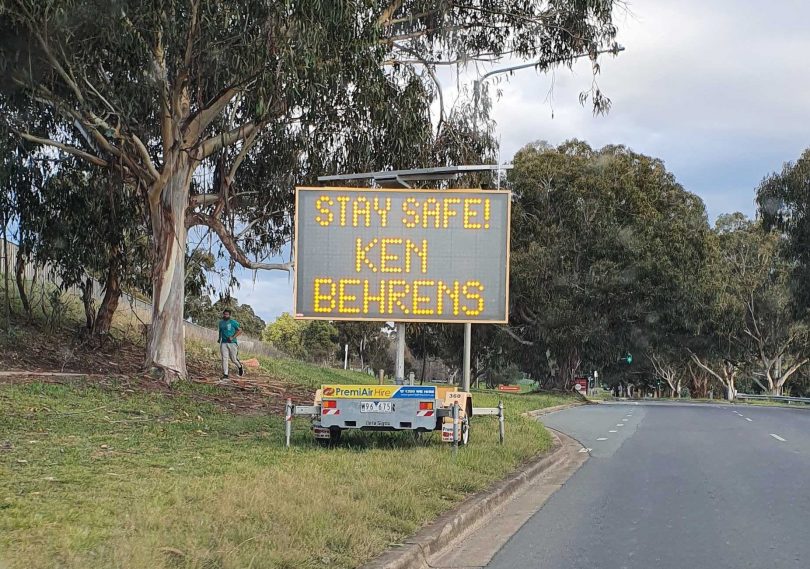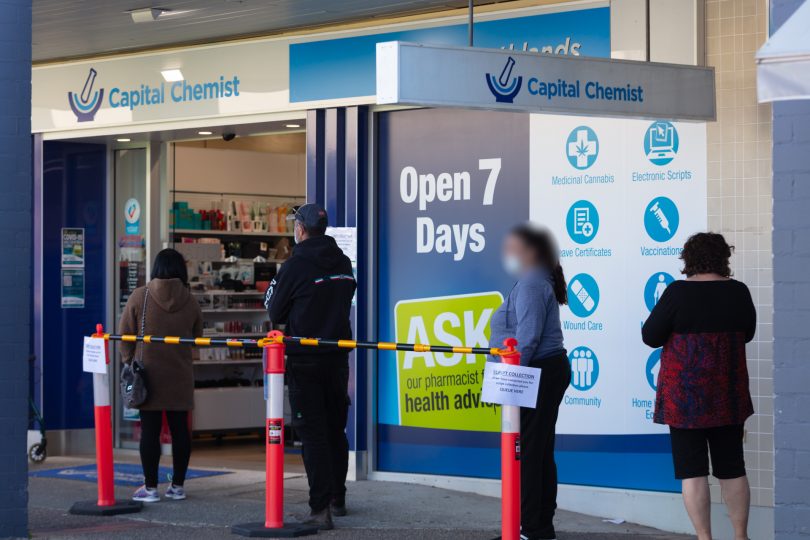
Here’s the current advice and what you need to know after COVID. Photo: David Murtagh.
For a long time, we did everything we could to avoid catching COVID-19 (lockdowns, anyone?)
The reality is that many of us will catch the disease. Luckily for most, common symptoms of the virus can be managed at home with pain relief and by staying hydrated. You should also isolate from others.
Here’s what you might need to know about what happens once you’ve recovered.
Is there anything I can’t do once I’ve recovered?
Current ACT Health advice is that while most people who develop COVID-19 do so in the first seven days of being exposed to it, there is still a chance of catching the virus during the following week.
To protect people you might come into contact with, you shouldn’t be entering high-risk settings such as hospitals (unless you need urgent medical care), residential aged care facilities or correctional and detention facilities for at least three days following your clearance from isolation.
You should also avoid mass gatherings, large-scale events and public transport for this time.
Wearing a face mask indoors and practising good hand and respiratory hygiene is also important.
There’s different advice to follow for people who are significantly immunosuppressed.
If there are still people in your household who have COVID-19, ACT Health advises you avoid high-risk settings until everyone in the household is cleared of their infections.

You can get your booster dose but should talk to your doctor about when you should do so. Photo: Thomas Lucraft.
When should I get my booster dose?
Current ACT Health advice is that booster doses are still recommended for people who have had COVID-19 in the past.
Unfortunately, they aren’t able to provide an awful lot of certainty around when exactly that booster dose should be administered.
“While you may have some natural immunity after being infected, the protection gained varies from person to person,” their advice reads.
“It’s not yet clear how long any natural immunity might last for.
“After you have recovered from COVID-19, we recommend you talk to a GP or health care provider for advice on the best timing for vaccination,” they say.
In some cases, vaccination may be delayed for up to six months after recovering from the infection.
There is a lot of conflicting advice out there about this. Some leading epidemiologists, like Professor Catherine Bennett, have said you really should be getting your booster as soon as you are well recovered from the infection.
The best thing to do is talk to your own GP.
Can I catch it again?
It’s likely you can.
However, current health advice says that you don’t need to get tested if you’re classified as a household or high risk (close) or moderate risk (casual) contact of someone with COVID-19 if it’s within one month of your clearance from isolation.
However, “if you develop new symptoms of COVID-19, you should get tested and isolate until your symptoms resolve and you receive a negative test”.
After that month has passed, you’d go back to being treated just like any other COVID-19 contact.
Do I still have to follow the public health directions?
Yes.
What about lingering symptoms? What should I keep an eye out for?
Although most people will recover completely from COVID-19 within a few weeks, some will have symptoms that can go on for a bit longer.
According to ACT Health, the most common symptoms which last beyond a few weeks include fatigue, chest discomfort and cough.
Less common are problems with your sense of smell or taste, headache, runny nose, joint or muscle pain, trouble sleeping or eating, sweating and diarrhoea.
“Your recovery will depend on your age, your overall health, and how severe your COVID-19 symptoms are,” ACT Health says.
Once again, if you’re worried about ongoing symptoms after being cleared from isolation, you’re asked to talk to your usual healthcare providers.
If you need more information, the World Health Organisation has put together this comprehensive guide for managing post-COVID-19 illness.
Original Article published by Lottie Twyford on Riotact.





